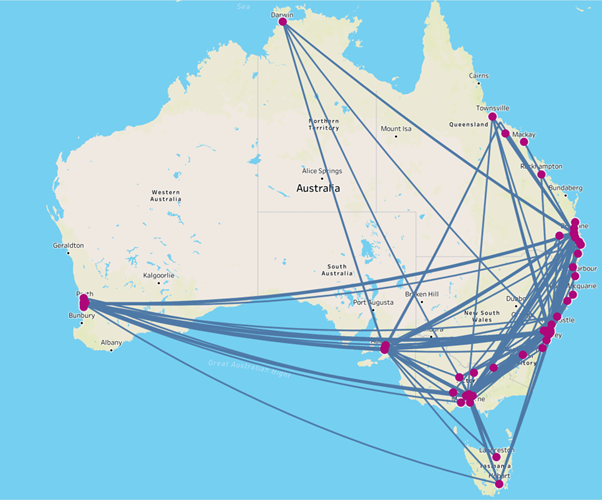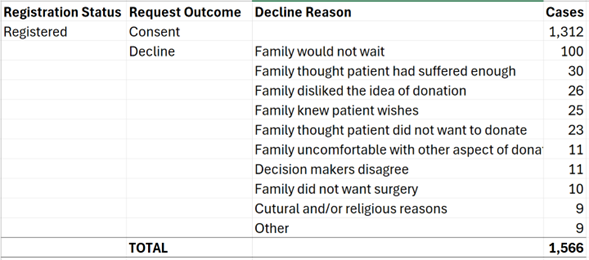Barriers to consent in Australia within those opted-in to donate
Mark McDonald1, Kane Deering1, Alison Hodak2.
1Analytics and Technology, Australian Organ and Tissue Donation and Transplantation Authority, Canberra, Australia; 2Clinical Programs, Australian Organ and Tissue Donation and Transplantation Authority, Canberra, Australia
Introduction: From 2020-2024 the consent rate within those registered to donate on the Australian Organ Donor Register (AODR) was 84% compared with only 46% when the patient did not have a recorded donation decision. Despite the comparatively high consent rate in this group, there remain several key barriers to donation, including logistics.
In Australia the geographic spread of the population means that donation hospitals and transplant units can be more than 3,500 kilometres apart. Organs are allocated and transplanted interstate due to national urgency, allocation priority or when there are no suitable recipients within the state of donation. Even for organs allocated withing the state of donation retrieval teams can be required to travel more than 1,400 kilometres each way to retrieve organs. The movement of organs from donor hospital to transplant unit across Australia in 2024 is shown below:

Method: We analysed 5 years of national data from the DonateLife Audit from 2020 to 2024 focussing on the reasons recorded for families declining organ donation, specifically in cases where donation was declined despite the patient having a recorded op-in decision on the AODR.
Results: Between 2020 and 2024, there were 1,566 requests from registered potential donors with a consent rate of 84%. The data show that the most common reason for decline was that the family was not prepared to wait the time required for organ donation to occur (n = 100).
Request outcomes when patient was registered on the Australian Organ Donor Register 2020-2024:

Conclusion: Work to streamline organ offer, allocation and retrieval processes and effectively communicate donation timelines with potential donor families may reduce overturns of registered donation decisions.
[1] Consent
[2] Registration
[3] Veto
[4] Logistics